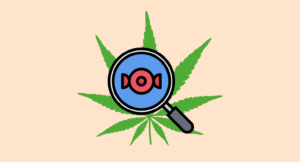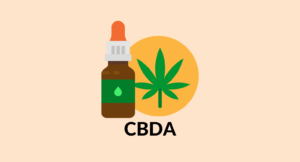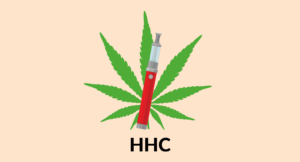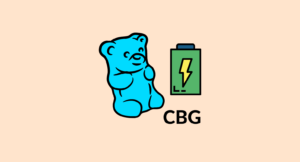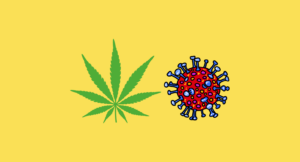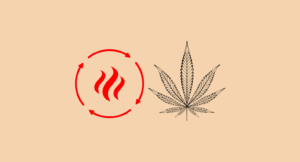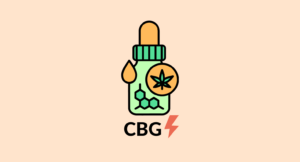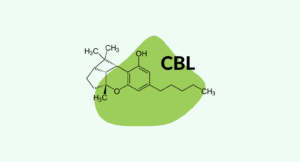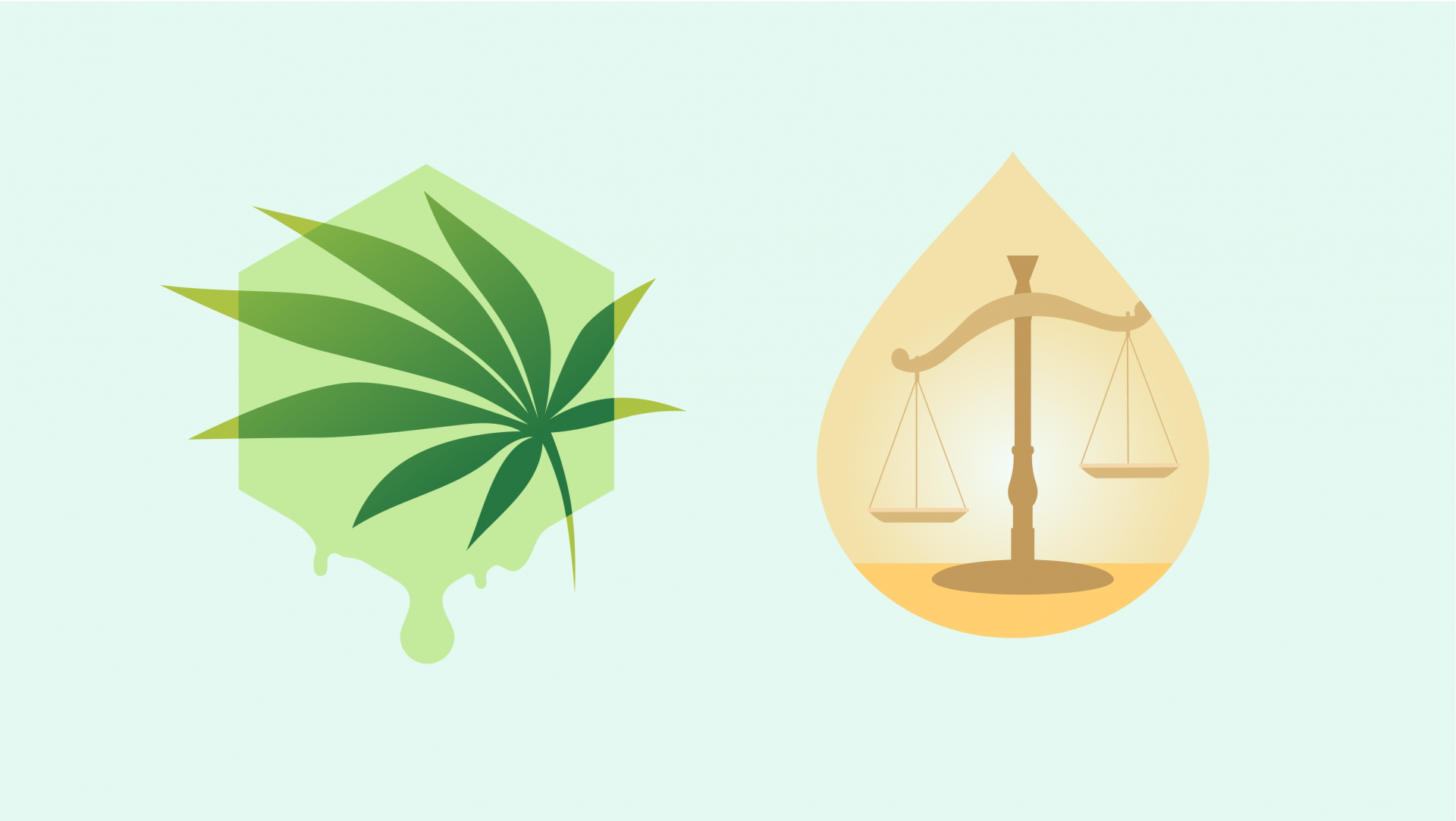
Is CBD Legal In All States? World & Federal Laws on CBD Oil
Where are CBD products legal, and where are they illegal? This all-inclusive world guide covers everything you need to know about buying CBD legally.
CBD laws are changing on a daily basis around the world — it’s hard to keep track of.
We employ a dedicated team of CBD experts and legal professionals to update this all-inclusive world guide covering the legality of CBD products around the world.
There’s a lot to cover, so let’s get started.
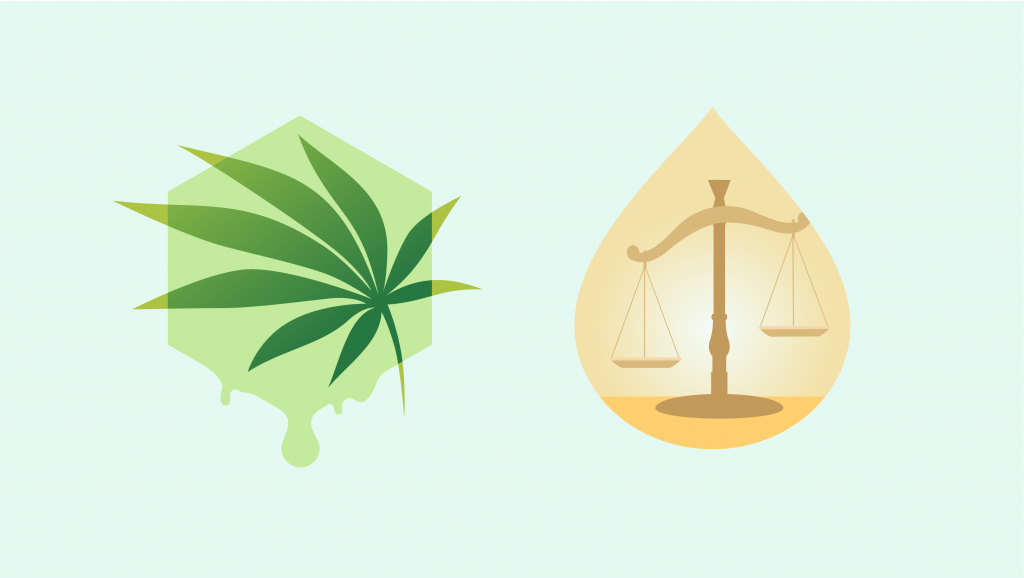
Is CBD Legal Where You Live? | Select Your Region
First of All, What is CBD?
Cannabidiol (CBD) is a chemical compound classified as a phytocannabinoid.
Phytocannabinoids are compounds derived from the cannabis plant that mimic hormone-like compounds in the body (known as the “endocannabinoids”).
Phytocannabinoids are mostly concentrated in the hairy outgrowths (called trichomes) of the female cannabis plant. The sex of the cannabis plant is imperative because the female plant grows large buds that produce many phytocannabinoids, while the male plants produce very little.
Over the last few years, CBD has become a popular supplement for supporting anxiety, depression, pain, epileptic seizures, diabetes, and much more.
The number of countries that have approved the medical use of CBD (and other cannabinoids) is growing — though there’s a lot of research to be done yet.
CBD can be derived from two different types of cannabis plants — marijuana and hemp.
The difference between the two plants is the percentage of THC (tetrahydrocannabinol) contained within the plant — which is the main reason behind the psychoactive effects of marijuana.
Both marijuana and hemp contain the phytocannabinoid THC but in very different amounts.
To be considered hemp, the plant must contain no more than 0.3% THC (0.2% in Europe). Any cannabis plants that have THC higher than 0.2% or 0.3% is considered marijuana.
Because THC is psychoactive and restricted in most countries, CBD products derived from marijuana with high THC levels remain illegal throughout most of the world.
Where things get tricky is with the hemp plant. Crops with a THC content of less than 0.3% is non-psychoactive, so the laws limiting the use of hemp plants have been an open topic of debate — with some countries like the United States eradicating restrictions on non-psychoactive hemp plants.
Each country has its own opinion about this plant, but the trend is moving towards making all hemp plants that contain less than 0.3% THC completely legal to grow, process, and use as a health supplement.
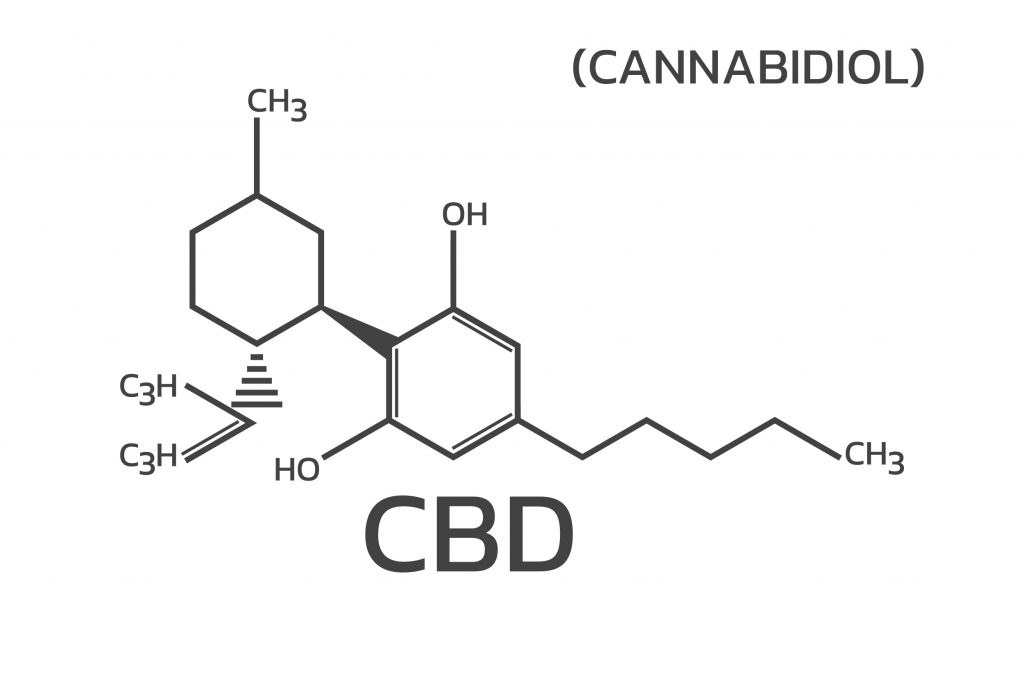
Is CBD Legal In The United States?
Yes! CBD products can be legally purchased in all 50 states as long as it comes from hemp plants and contains a THC concentration of 0.3% or less.
The 2018 Agricultural Improvement Act effectively de-scheduled hemp as a Schedule 1 drug, while marijuana remains a Schedule I drug on a federal level (state laws may differ).
The distinction between hemp and marijuana means that any CBD product made from hemp that contains less than 0.3% THC is legal under federal law.
You can buy CBD products online, or in-store throughout the United States without a prescription.
Due to the friendliness towards hemp products in the United States, and the general lack of regulation in the industry, the US currently has the largest market of CBD companies in the world, and is the current driver of the cannabis economy.
Summary: Buying CBD In The United States
- CBD products with less than 0.3% THC are legal to use and possess in the eyes of the federal government.
- Most states have a friendly view of CBD products but there are a few that take a restrictive stance. It’s difficult for shops to sell CBD in these states but you can still order it online.
- Under the 2018 Agricultural Act (also known as the Farm Bill), industrial hemp is no longer considered a controlled substance. Farmers are free to grow hemp for research and commercial purposes
Best CBD Oil in The United States
| Number | Product | Total CBD | Potency | Cost per mg CBD | Link |
|---|---|---|---|---|---|
|
1 |

Royal CBD Oil |
250 – 1000 mg |
8.3 – 33.3 mg/mL |
$0.15 – $0.26 |
|
|
2 |

Gold Bee CBD Oil |
1200 mg |
40 mg/mL |
$0.09 |
|
|
3 |
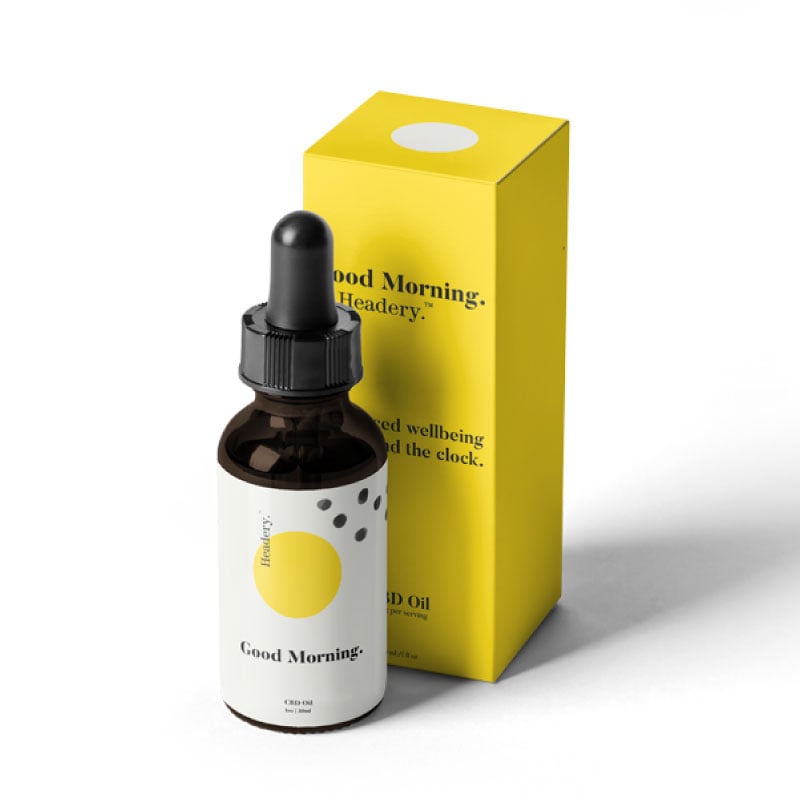
Good Morning. By Headery |
900 mg |
30 mg/mL |
$0.08 |
|
|
4 |

Hemp Bombs CBD Oil |
300 – 4000 mg |
10 – 133.3 mg/mL |
$0.07 – $0.17 |
|
|
5 |

Charlotte’s Web CBD Oils |
210 – 6000 mg |
7 – 60 mg/mL |
$0.05 – $0.19 |
|
|
6 |

Lazarus Naturals Full-Spectrum Tincture |
750 – 6000 mg |
15 – 50 mg/mL |
$0.03 – $0.05 |
|
|
7 |

Kiara Naturals Pain Relief Tincture |
800 mg |
8 mg/mL |
$0.12 |
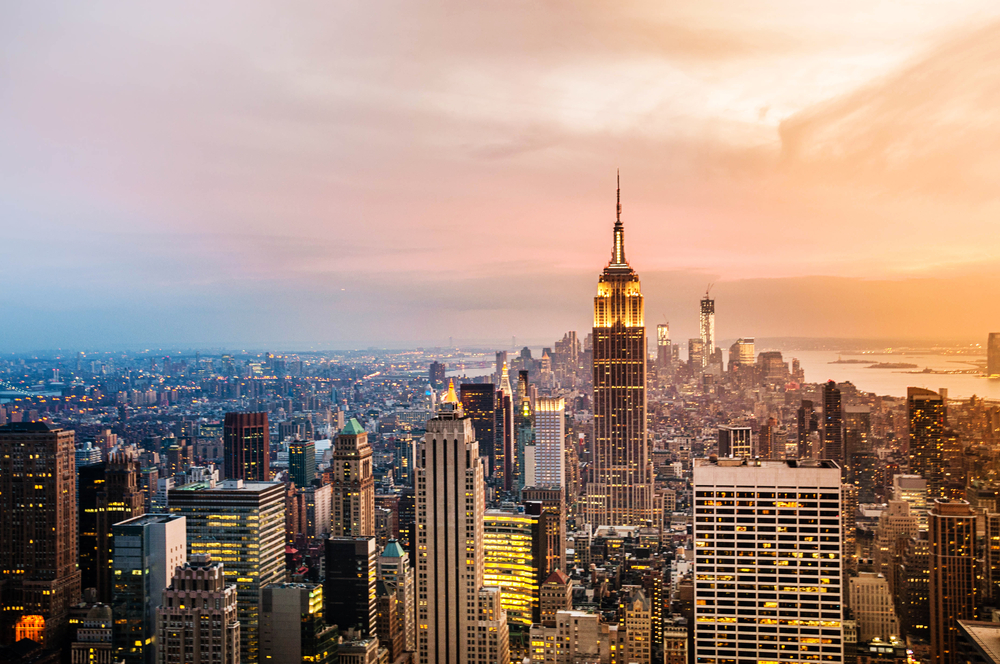
A Brief History of Cannabis Laws in The United States
Cannabis wasn’t always perceived negatively in the United States.
In fact, cannabis (more specifically hemp — a distinction we’ll discuss later in the article) was one of the crucial plants grown by farmers in the early days of colonization.
In the 1600s, legislation was passed that encouraged every farmer to grow hemp along with their crops [1].
However, public fears around cannabis grew in the early 1900s after the Mexican Revolution. Mexicans largely introduced recreational cannabis use to the United States and it became associated with the immigrants — and crimes became attributed to marijuana cigarettes [2].
In 1936, the infamous film Reefer Madness was released. Reefer Madness demonized cannabis use — saying it could lead to manslaughter, rape, suicide, hallucinations, and complete madness. If you’re interested in watching the film, it’s in the public domain and can be watched here: Reefer Madness.
The 1970s were a bad time for cannabis. President Nixon introduced the Controlled Substance Act which made cannabis a Schedule 1 drug.
Schedule 1 Drugs Defined by the United States Federal Government:
- Compounds with no accepted medical use
- Compounds that are likely to be abused or create dependency
- Compounds that can’t be used safely under medical supervision
Other Schedule 1 drugs include heroin, meth, LSD, peyote, and ecstasy. Under the Controlled Substances Act, possession of these drugs can lead to large fines and jail sentences.
President Nixon was famously quoted as saying that drugs were “public enemy number one.”
Some states would decriminalize possession of cannabis over the next few years — meaning possession would only lead to a small fine.
Cannabis remained illegal in all 50 states until California legalized cannabis for medicinal use in 1996. Several states followed California’s lead, and slowly, the stigma around cannabis products was lifted.
Finally, in 2012, Colorado and Oregon made cannabis legal for recreational use.
Although cannabis remains a Schedule 1 drug in the eyes of the federal government, as of 2020 more than 33 states have legalized it in some capacity — whether for medicinal or recreational use.
So what does this all mean for CBD?
The answer partially lies in the distinction between hemp and marijuana.
The Difference Between Hemp & Marijuana According to the Federal Government
Hemp and marijuana are the same species (Cannabis sativa) — yet the two have some distinct differences.
Hemp strains of cannabis are defined by the US government as any cannabis plant that doesn’t produce more than 0.3% THC by dried weight. This is not enough of this cannabinoid to get users high.
Conversely, marijuana plants are considered any cannabis plant that contains higher than 0.3% THC. These are the plants used recreationally to get users high. THC concentrations can be as high as 32% in these strains.
Legally, there’s a clear distinction between the two plants — hemp is considered legal in all 50 states, and is the primary source of CBD for health supplements.
Marijuana, on the other hand, is highly regulated. Only 11 states so far have legalized marijuana use among the public. The rest of the United States requires users to have a medical license before they can use marijuana.
| CBD (Hemp) | Medical Marijuana |
| Made from hemp plants | Made from marijuana plants |
| THC concentration is no higher than 0.3% (0.2% in Europe) | Can be either low or high in THC |
| Does not induce psychoactive “high” | Can make users “high” |
| Legal to buy in most places | Can be bought only with a prescription or outlawed completely |
| Non-limited purchase (the consumers can buy it whenever they want, how many times they want) | Limited for purchase |
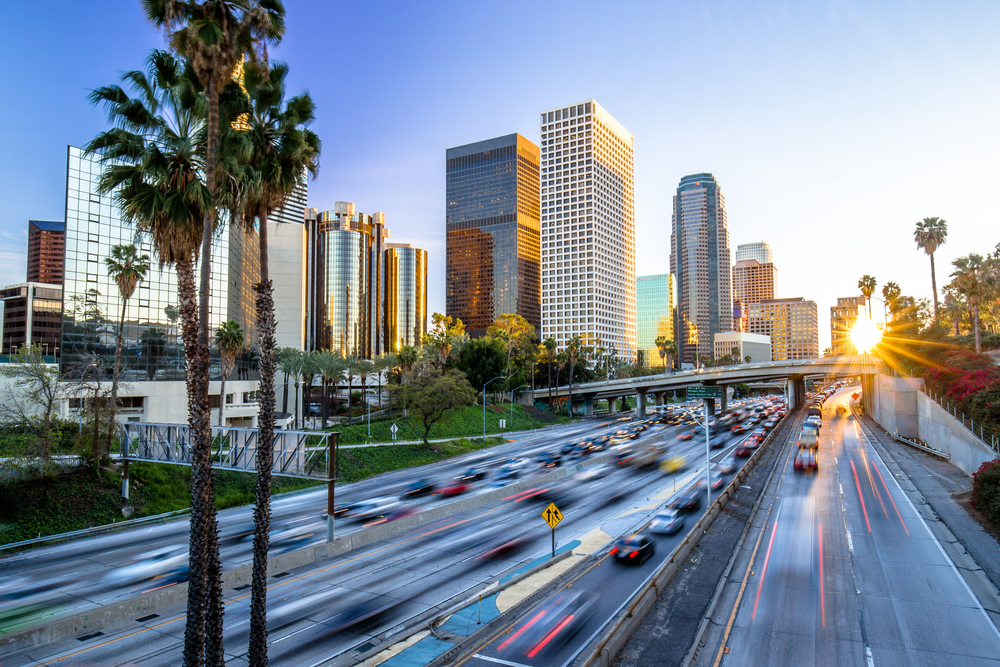
CBD Laws By US State
Buying CBD in the United States
How to Buy CBD Products in The United States
The good news is that CBD is widely available in all 50 states — it’s actually very easy to buy CBD in America.
If you live in a state with recreational cannabis laws, CBD can be found in dispensaries, head shops, vape stores, convenience stores, and health food outlets. Even some supermarkets and gas service stations carry CBD products on their shelves.
Idaho, Nebraska, and South Dakota have strict laws on cannabis products. Despite the fact that CBD is legal in these states, local state laws make it difficult for retailers to sell it. In these states, it’s best to order CBD products online.
Shopping for CBD online is widely considered to be the best way to buy CBD in the United States for a few reasons:
- Prices are better online
- There’s more selection online
- You can have your products shipped directly and discreetly to your front doorstep
- You can read reviews before you buy
Online suppliers usually don’t need physical storefronts which reduces their costs significantly — these savings are usually passed onto their customers. As a result, CBD products sold online are almost always less expensive than those in-store.
Tips for Buying CBD Online in The United States:
- Research the company before you buy — Most of the downsides of buying online can be mitigated by choosing well-known brands with strong customer service policies.
- Look for third-party test results — These tests can tell you a lot about the product before you hand over your hard-earned cash — including the cannabinoid content and if it contains any potentially dangerous materials.
- Trust your gut — If something looks sketchy, it probably is.
- Order larger bottles and potencies at a time to save money — The more CBD you buy at a time (bigger bottle, or stronger potency) the better the value. A 2000 mg high-potency bottle of CBD may feel expensive compared to 300 mg bottle, but the price is almost always better value. Look at the cost per milligram of CBD instead of the overall price to assess value.
- Look out for signs of a CBD scam before you buy — there are a lot of companies operating online that have sketchy or scammy business models. There are a few signs to look out for to avoid these companies.
International CBD Laws: The Legal Controversy Over CBD
Hemp CBD as a product is still not completely legalized in some countries. Numerous laws and bills allow the legal growing of hemp for CBD production but under strict and exclusive circumstances.
What does this mean?
It means that hemp-derived CBD is legal only if it complies with federal and/or national laws.
In the case of the EU legislation, it’s legal in the European Union. Still, laws on what’s allowed and what’s not depend on the country’s law i.e., national governments can adapt the legislative according to their policies.
The situation is similar in the USA. Hemp-derived CBD is legal on a federal level, but the laws vary from one state to another.
The biggest problem is that there’s still no clear definition of what a “CBD product” actually is. Is it a nutritional supplement? Food product? Drug? This classification will vary from one country or state to the next.
Various regulatory bodies throughout the world are still working on a decent solution to end this confusion. Until then, many CBD products remain in a legal “grey area.”
This grey zone can be more inclined towards the legal or illegal side of the spectrum.
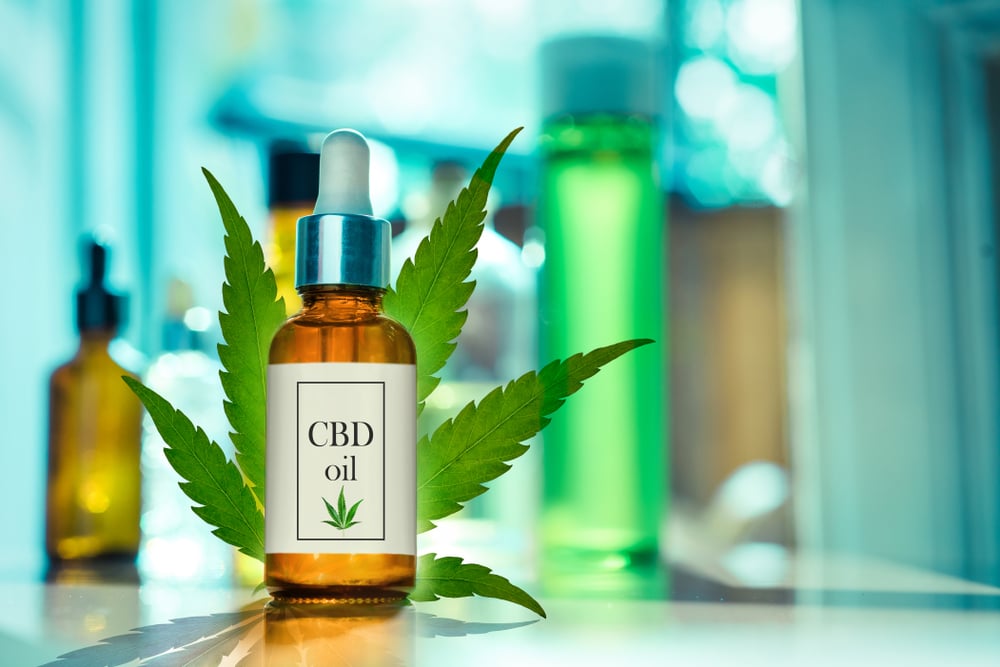
An Important Distinction: CBD Oil vs. Medical Marijuana
One more thing that has been brought to the table of (il)legal controversies is the difference between CBD oil and medical marijuana. The differences between these two are shown in the table below.
Key Takeaways: Where Is CBD Legal?
The laws on CBD are changing with the same velocity as the colors of a disco light bulb. As soon as you think you’ve read everything, know that there is a government reviewing and changing its regulations and legislature.
One of the main reasons for this is the lack of a harmonized international regulation on THC levels in CBD products. Also, varieties of the cannabis plant, national versus international rules, and even differences between political parties’ views on CBD are all reasons why it’s challenging to write a final sentence on this topic and close it with a full stop.
The fact is, there are countries that serve as the main players in the CBD market. By analyzing their laws, we can look at the bigger picture to help you understand the world laws on CBD.
Countries Where CBD Is Legal (Unrestricted) |
Countries Where CBD is Stuck in a Legal Grey Area |
Countries Where CBD Is Legal For Medical Use Only |
Countries Where CBD is Banned |
|---|---|---|---|
|
|
|
|
Before we get into the specific laws and regulations of each country, we have to cover some of the basic terms and definitions used in this article:
- Unrestricted — CBD and hemp are completely legal to buy and use. You can buy them without prescription online or in-store and won’t be breaking any laws to do so. There are usually limits on the amount of THC allowed in these products to remain legal.
- Restricted — CBD and hemp are legal if certain conditions are met. This often means only certain amounts of the active ingredient are present, or the preparation is entirely free of THC.
- Banned — Hemp and CBD products are considered illegal. You will not be able to buy these products in restricted countries, and some even have jail sentences if you’re caught in possession of CBD or hemp oil.
- Medical Only — CBD and hemp products are legal via prescription from a health practitioner only. Sometimes, this involves a special medical card or license. Other times, it simply means you won’t be convicted if caught in possession.
- Grey Area — CBD and hemp laws have not yet been defined. Federal governments or EU regulators may have legalized CBD, but local laws disagree. CBD is stuck in a legal/not-legal loophole until the local regulations are adapted to either ban or legalize CBD and hemp completely.

CBD Laws Around the World
In 1961, the United Nations introduced the Single Convention on Narcotic Drugs — an international treaty aimed at reducing the production and supply of narcotic drugs.
Cannabis was included in the definition of narcotic drugs, and the UN encouraged member countries to enact laws that restrict the distribution, possession, and use of cannabis products.
However, the treaty did not restrict growing cannabis for industrial or horticultural purposes.
In 2018, the Expert Committee on Drug Dependence (ECDD) of the World Health Organization (WHO) stated that preparations considered to be pure cannabidiol should not be scheduled within the International Drug Control Conventions. According to ECDD, the absence of psychoactive properties in CBD makes it safe for use because it does not cause drug dependence.
1. CBD in North & Central America
Americans have always had a friendly relationship with cannabis, despite the prohibitionist laws in the 20th century.
The enthusiasm for CBD in North America started somewhere in 2013 after a CNN program covered the story of a two-and-a-half-year-old American girl suffering from Dravet Syndrome. After trying various forms of treatment, her parents agreed to try a cannabis-based medicine (rich in CBD) from France. The girl’s seizures decreased, and the positive outcome influenced 16 states to legalize CBD for medical use in the US.
Both the US and Canada have specific laws that regulate hemp and CBD products — the Agriculture Improvement Act of 2018 and the Cannabis Act, respectively. Mexico is in the process of establishing a law that will control CBD products.
The situation in Central America and the Caribbean is not much different than in South America. Cannabis is the source of wealth for most cartels and organized crime groups, and national governments consider the plant a threat.
Cannabis has a long history in Central America, and its use has served mostly for recreational purposes. However, some indigenous people have used it for religious rituals, and as a medicine.
Hemp is not a crop with a privileged status, and it’s often considered equal to marijuana. The region prohibits hemp-derived CBD, and only a small percent of countries allow it for medical use.
Buying CBD in North America & the Carribean
North America is leading the global CBD market share with 40%. The huge market offers various high-quality CBD products:
- CBD isolates (0% THC)
- CBD capsules
- CBD edibles (gummies, chocolates and bars, snacks, granola, smoothies and juices, CBD-infused butter, and other)
- CBD tinctures
- CBD vape oils
- CBD skin and hair products
- CBD pet products
You can purchase CBD in Canada and the US in various local stores, including:
- Vape stores
- Tobacco stores
- Health food and alternative medicine stores
- Specialized cannabis and CBD stores
- Headshops
- Wellness and cosmetic stores
- Gift shops
- Cafés
- Dispensaries
- Licensed pharmacies
Unless you live in Jamaica (or you’re just holidaying at one of the island’s beaches), don’t have high hopes for finding CBD stores in Central America and the Caribbean.
Laws are strict, so you’ll probably have to look for an online option or obtain a doctor’s prescription. You should understand the local laws before you purchase CBD.
Another option to purchase CBD is online. If you want to learn more about CBD in North America, check our informative guide for the region.
CBD Legality in North America and The Carribean by Country
Unrestricted |
Legal for Medical Use |
Legal Grey Area |
Banned |
|---|---|---|---|
|
|
|
|
2. CBD in South America
Despite the high concentration of illegal drug trafficking, it seems that South America has focused more on impeding the use of medicinal “drugs” like CBD, instead of fighting the war on hard drugs.
Most Latin American countries consider CBD a drug (some of them treat it as a narcotic), while others paved the way for its legal use with harsh rules. On the other hand, after Uruguay gave a green light for marijuana legalization, other South American countries started their plans to do the same, hoping that the rate of drug-related crimes will fall.
For now, CBD is either prohibited or legal only for medical use. Complete legalization is far from the horizon, but things are changing and giving hope to many that CBD will no longer be treated as a “dangerous” compound.
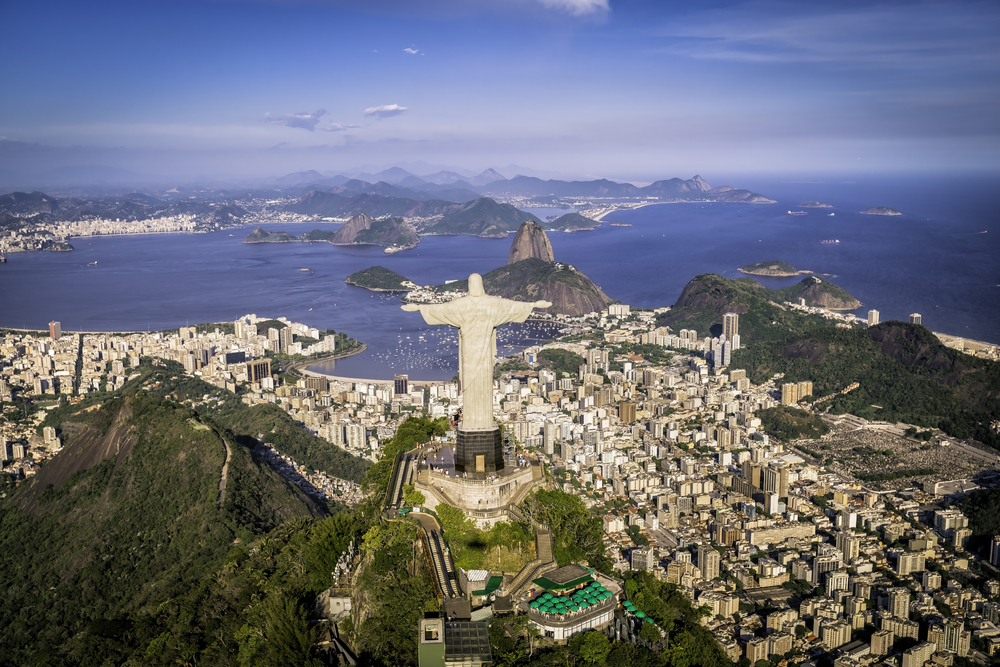
Buying CBD in South America
Due to the restrictive approach towards CBD, you won’t find many physical stores selling the cannabinoid in South America. The only exceptions are Uruguay and Colombia, where you can purchase CBD over the counter.
However, if you want to buy CBD in South America, you could shop online — online stores have a wide range of CBD products.
You shouldn’t risk importing CBD if you live in a country where CBD is villainized — you could end up receiving a hefty fine or serving jail time.
Check our detailed guide on South America to learn where and how to shop for CBD.
CBD Legality in South America by Country
Unrestricted |
Legal for Medical Use |
Banned |
|---|---|---|
|
|
|
3. CBD in Asia & the Middle East
Although Asians have used cannabis as a medicine and textile for centuries, it has been banned for years.
Aware of the multiple uses of cannabis — medicinal and therapeutic, scientific, industrial, and commercial — many regions reintroduced cannabis to their soil in the last decade.
Today, Asia is not lagging behind continents benefiting from the cannabis industry. On the contrary — the region is easing the laws by re-establishing the cultivation and use of hemp.
The changes mean a modern and positive attitude towards CBD. The Asian region is expected to become one of the leaders in industrial hemp and hemp-derived CBD.
It’ll probably take some time until laws are synchronized, but the Asian CBD market will soon share the success with the current leaders — Europe and North America.
CBD cosmetics are already popular in South Korea, Japan, and China — these countries are developing a competitive CBD cosmetics market, making the region a potential leader in the CBD trade.
Unlike Asia, the Middle East doesn’t tolerate cannabis and its derivatives. The only country that authorizes CBD use is Israel.
Israel has a highly developed cannabis research system and is one of three world countries where the government finances scientific and medical cannabis research.
For now, CBD in Israel is permitted only for medical use and requires a doctor’s prescription.
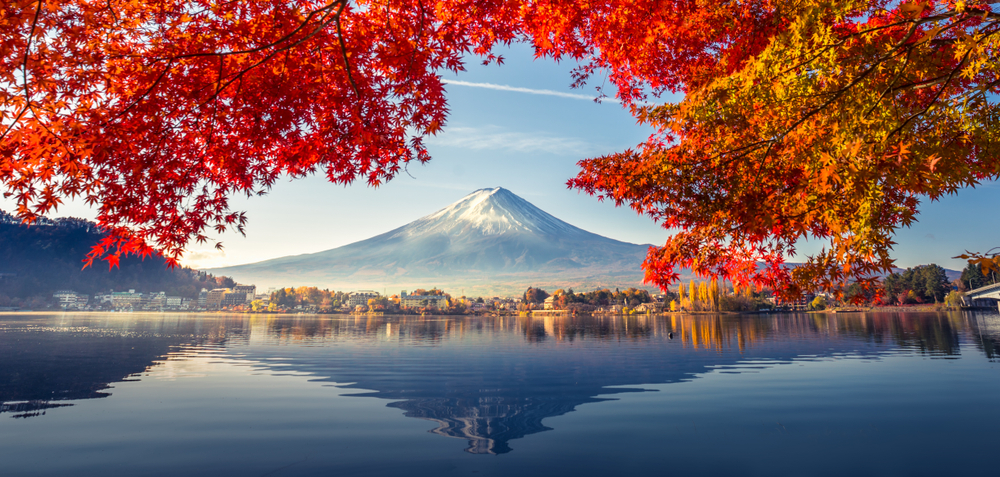
Buying CBD in Asia & the Middle East
If you want to buy CBD in-store in Asia, it’s best to wait until the region establishes its laws on product sales. Until then, you can purchase CBD online, but do this with caution. Never put yourself at risk by importing prohibited goods.
When it comes to the Middle East, remember that cannabis regulations are harsh, and any violation of the law would give you a hard time. Refrain from buying CBD in the Middle Eastern region.
If you live in Israel, you can purchase medical CBD after you obtain a doctor’s prescription.
You can read more about the local laws and how you can shop for CBD from online stores in our continent guide.
CBD Legality in Asia & the Middle East by Country
Unrestricted |
Legal for Medical Use |
Legal Grey Area |
Banned |
|---|---|---|---|
|
|
|
|
4. CBD in Australasia
Australasia has a long history of cannabis use and diverse cannabis culture. The region is known for having many organizations that advocate for cannabis law reforms. Australia even has a political party — Help End Marijuana Prohibition (HEMP) — working on the full legalization of cannabis for medical, recreational, and industrial use.
Australasia is considered one of the regions with the strictest laws on hemp-derived products. CBD is legal only for medical use, and accessing the product even when you’ve obtained a prescription can be difficult.
Luckily, things started changing after decades of pressure and demands for cannabis legalization. The Australia Capital Territory legalized recreational marijuana in September 2019, and New Zealand is about to change its laws.
These reforms are expected to bring a more satisfactory status for CBD, mainly because the interest in the cannabinoid is not limited to patients only. There are many other people who would love to experience the benefits of this hemp good.
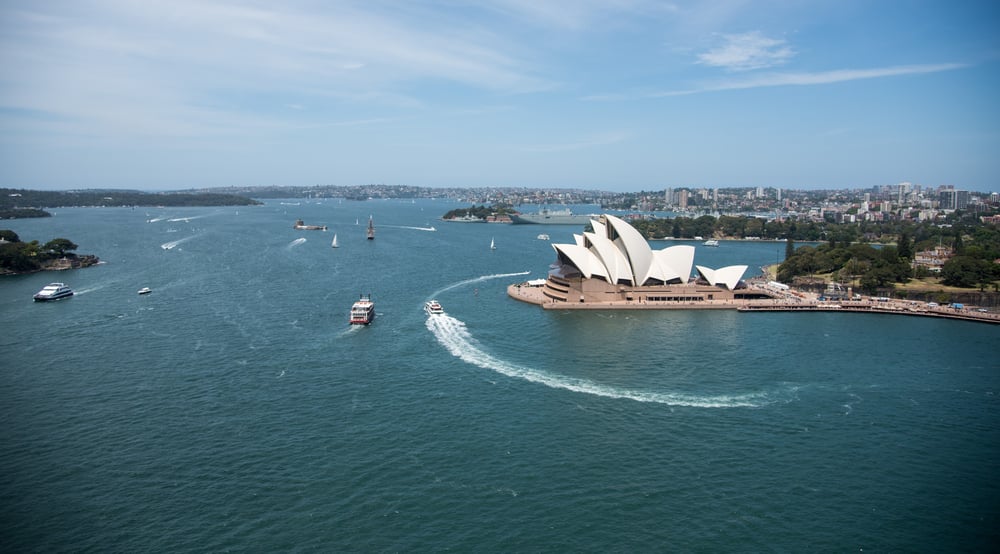
Buying CBD in Australasia
For now, you can buy prescription-only CBD from licensed pharmacies. Once new laws are set, you’d be able to place online orders.
If you’re interested in how to buy CBD in Australasia, you can go through our specific continent guide and find out more about brands that operate in Australasia.
We’re following the law changes, and we’ll make sure you stay updated about any news around the region’s CBD legal matters.
CBD Legality in Australasia by Country
Legal for Medical Use |
Legal Grey Area |
Banned |
|---|---|---|
|
|
|
5. CBD in Africa
Africa has a harsh attitude towards cannabis. Possession of CBD and cannabis products, even when completely free of THC, can lead to harsh penalties.
Luckily, South Africa stands out with friendlier laws, allowing CBD use under strict rules.
South Africa is the region’s pioneer country when it comes to allowing CBD purchases over the counter.
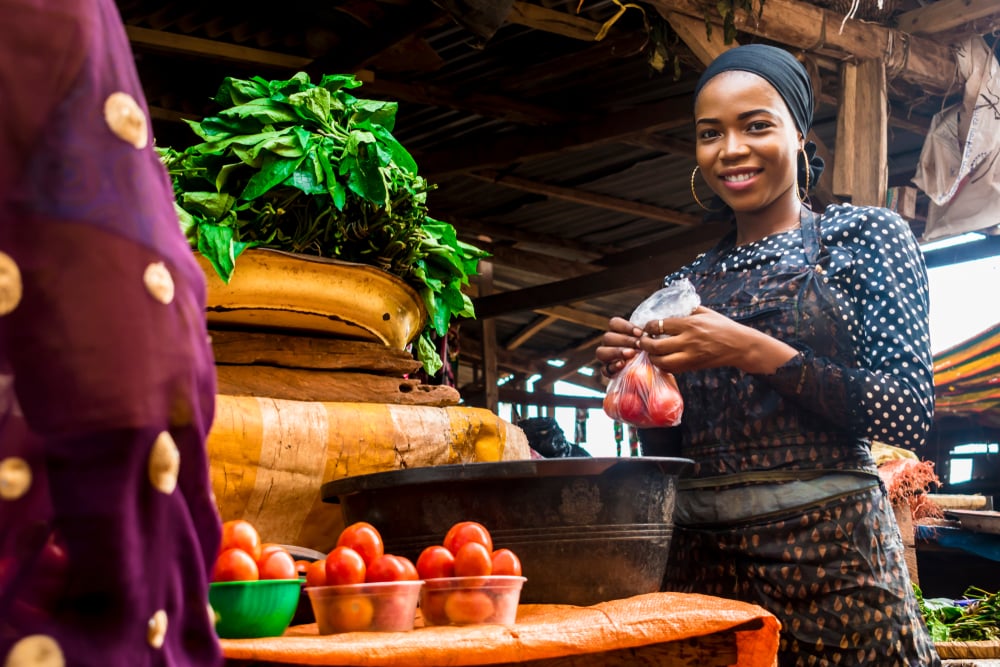
Buying CBD in Africa
The options for buying CBD are not many, but if you live in South Africa, you might be able to purchase CBD from a licensed pharmacy or a local store.
If you need help in choosing a CBD brand and you want to learn more about the CBD market in the region, you can check our complete guide on buying CBD in Africa. The article is rich in details about each CBD-friendly country and includes tips on how to purchase top-notch CBD products.
6. CBD in Europe
Europe, as a continent with so many nationalities, traditions, cultures, and outer influences, has a varied opinion on the topic of cannabis.
The general view on cannabis is positive and friendly, especially among the younger generations. On the other hand, Europe’s cultural values, traditions, and religions are often uncompromising and cannabis doesn’t always fit well in the frame.
Despite some common European politics and the EU’s work on a more harmonized legislature, it is still challenging to explain the general attitude towards CBD products. Some countries fancy the hemp product, while others prefer to keep a tight rein on the laws.
There’s a big difference from one region to another. For the very same reason, we chose to organize the European laws on cannabis, CBD oil, and other CBD products with the highest possible precision in this guide.

Buying CBD in Europe
Europe has the second-largest CBD market in the world. You can find CBD in various local stores, or you can purchase hemp-derived products from brands that operate online.
One thing is for sure; you’ll never have to worry about finding the CBD product you want.
If you’re interested in details about shopping for CBD in the European region, jump to our continent guide — you’ll find all the facts you should know before you order your CBD.
CBD Legality in Europe by Country
Unrestricted |
Legal for Medical Use |
Legal Grey Area |
Banned |
|---|---|---|---|
|
|
|
|
Summary: CBD Laws By Country
Before we get into the specific laws and regulations of each country, we have to cover some of the basic terms and definitions used in this article:
- Unrestricted — CBD and hemp are completely legal to buy and use. You can buy them without prescription online or in-store and won’t be breaking any laws to do so. There are usually limits on the amount of THC allowed in these products to remain legal.
- Restricted — CBD and hemp are legal if certain conditions are met. This often means only certain amounts of the active ingredient is present, or the preparation is completely free of other compounds like THC.
- Banned — Hemp and CBD products are considered illegal. You will not be able to buy these products in restricted countries, and some even have jail sentences if you’re caught in possession of CBD or hemp oil.
- Medical Only — CBD and hemp products are legal via prescription from a health practitioner only, Sometimes this involves a special medical card or license, other times it simply means you won’t be convicted if caught in possession.
- Grey Area — CBD and hemp laws have not yet been defined. Federal governments or EU regulators may have legalized CBD, but local laws disagree. CBD is stuck in a legal/not-legal loophole until the local laws are adapted to either ban or legalize CBD and hemp completely.
| State/Country | CBD Legal Status | Hemp Cultivation Legal Status | THC Legal Status | THC Legal Limit in Hemp Oils |
| Argentina | Medical Only | Hemp Legal | Banned | 0.2% |
| Australia | Medical Only | Hemp Legal | Banned | Not Listed |
| Austria | Medical Only | Hemp Legal | Banned | 0.3% |
| Belgium | Medical Only | Hemp Legal | Banned | 0.2% |
| Belize | Medical Only | Hemp Legal | Grey-Area | Not Listed |
| Brazil | Medical Only | Hemp Not Legal | Banned | Not Listed |
| Bulgaria | Unrestricted | Hemp Legal | Banned | 0.2% |
| Canada | Unrestricted | Hemp & Marijuana Legal | Unrestricted | Not Listed |
| Chile | Medical Only | Hemp & Marijuana Legal | Medical Only | Not Listed |
| China | Unrestricted | Hemp Legal | Banned | 0.3% |
| Colombia | Unrestricted | Hemp & Marijuana Legal | Unrestricted | 1% |
| Costa Rica | Grey Area | Hemp Not Legal | Grey-Area | 0.5% |
| Croatia | Medical Only | Hemp Legal | Banned | 0.2% |
| Cyprus | Medical Only | Hemp Legal | Banned | 0.2% |
| Denmark | Unrestricted | Hemp Legal | Banned | 0.2% |
| Estonia | Unrestricted | Hemp Legal | Banned | 0.2% |
| Finland | Grey Area | Hemp Not Legal | Banned | Not Listed |
| France | Unrestricted | Hemp Legal | Banned | 0.2% |
| Georgia | Grey Area | Hemp Not Legal | Banned | Not Listed |
| Germany | Unrestricted | Hemp Legal | Banned | 0.2% |
| Greece | Unrestricted | Hemp Legal | Banned | 0.2% |
| Guatemala | Banned | Hemp Not Legal | Banned | Not Listed |
| Hong Kong | Grey Area | Hemp Legal | Banned | 0% |
| Hungary | Unrestricted | Hemp Legal | Banned | 0.2% |
| Iceland | Grey Area | Hemp Legal | Banned | 0% |
| India | Grey Area | Hemp Legal | Banned | Not Listed |
| Ireland | Unrestricted | Hemp Legal | Banned | 0.2% |
| Israel | Medical Only | Hemp Legal | Grey-Area | Not Listed |
| Italy | Grey Area | Hemp Legal | Banned | 0.2% |
| Japan | Unrestricted | Hemp Legal | Banned | 0% |
| Latvia | Unrestricted | Hemp Legal | Banned | 0.2% |
| Lithuania | Unrestricted | Hemp Legal | Medical Only | Not Listed |
| Luxembourg | Unrestricted | Hemp Legal | Grey-Area | 0.3% |
| Malta | Medical Only | Hemp Legal | Medical Only | Not Listed |
| Mexico | Grey Area | Hemp Not Legal | Restricted | 1% |
| Netherlands | Unrestricted | Hemp & Marijuana Legal | Grey-Area | 0.05% |
| New Zealand | Medical Only | Hemp Legal | Banned | 2% |
| Norway | Unrestricted | Hemp Not Legal | Banned | 0% |
| Paraguay | Unrestricted | Hemp Legal | Restricted | Not Listed |
| Peru | Medical Only | Hemp Legal | Medical Only | 1% |
| Poland | Unrestricted | Hemp Legal | Banned | 0.2% |
| Portugal | Medical Only | Hemp Legal | Medical Only | 0.2% |
| Puerto Rico | Unrestricted | Hemp Legal | Medical Only | 0.3% |
| Romania | Unrestricted | Hemp Legal | Banned | 0.2% |
| Russia | Grey Area | Hemp Legal | Banned | 0.2% |
| Singapore | Banned | Hemp Not Legal | Banned | 0% |
| Slovakia | Banned | Hemp Not Legal | Banned | 0% |
| Slovenia | Unrestricted | Hemp Legal | Unrestricted | 0.2% |
| South Africa | Restricted | Hemp Legal | Banned | Not Listed |
| South Korea | Medical Only | Hemp Legal | Banned | 0% |
| Spain | Unrestricted | Hemp Legal | Grey-Area | 0.2% |
| Sweden | Unrestricted | Hemp Legal | Banned | 0% |
| Switzerland | Unrestricted | Hemp Legal | Banned | 1% |
| Turkey | Medical Only | Hemp Legal | Banned | 0.2% |
| United Kingdom | Unrestricted | Hemp Legal | Banned | 0.2% |
| United States | Unrestricted | Hemp Legal | Grey-Area | 0.3% |
| Uruguay | Unrestricted | Hemp & Marijuana Legal | Unrestricted | 1% |
| Virgin Islands | Medical Only | Hemp Legal | Medical Only | 0.3% |
CBD Laws Around The World
Regional laws on CBD differ significantly. The negative attitude towards cannabis has done severe harm to the legal reputation of hemp and its derivatives. The rules are extremely contradictory and often stand in the way of CBD.
However, the demand for CBD is the pressure that national governments need. The more consumers insist on changes in local regulations, the harder governments and companies work to develop the CBD market.
Whether you can buy CBD or not depends a lot on the country you live in, so you should look at things from a wider perspective. Don’t forget that laws are changing quickly and that the CBD market is not always regulated.
Before you head to the local store to buy CBD or click the button to confirm the online order, inform yourself about your country’s cannabis rules.
Don’t forget that we’ve created a set of continent guides where you can check more about CBD in your region.

What the Future of CBD Laws Look Like Around the World
CBD businesses are forming the new Gold Rush. From an ingredient in the cannabis plant to food, drink supplements, and self-care products, cannabidiol dominates the international market of hemp products.
It seems like CBD has reached the mainstream peak — people love it for its various uses and benefits. However, the big pharma and national authorities refuse to acknowledge its effectiveness.
The future of CBD legality depends on many factors. The lack of international regulation, and the harsh national legislatures which treat CBD as a controlled substance are worrisome.
On the other hand, we can see that the medical use of CBD is growing, and it’s expanding the market. Medical CBD is changing national laws. Countries are eager to change their legislature in order to enter the promising market and satisfy the consumers’ demands.
Looking realistically at the current state of CBD, it’s not difficult to conclude that the product is surviving a legal crisis. New laws are taking time to be implemented, while the existing ones are strict and limiting. As long as national laws are going through overnight changes, the future of CBD won’t see the bright day. It is crucial to stop the legal ambiguity.
A harmonized legislature that will ensure the security, quality, and future success of the cannabis and CBD industry is more than necessary.
CBD Laws Around The World
Signup to our newsletter
Be the first to know about our newest arrivals and special offers!
